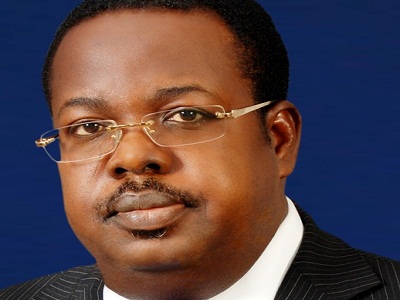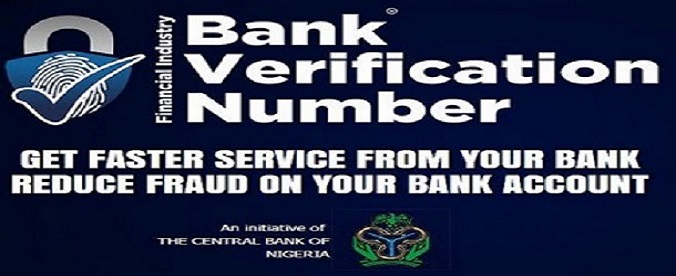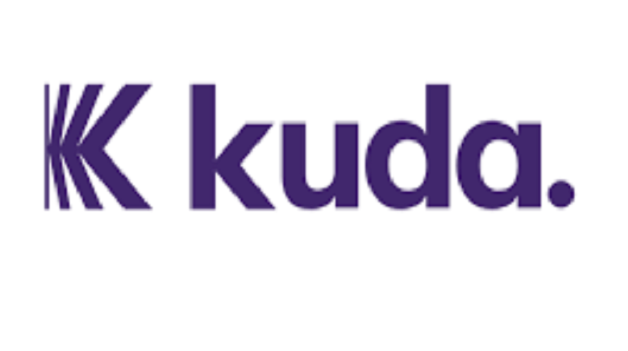E-Financial
Banks Issue 14.72m Cards, Invests$2.5Bn on ATMs

The total number of Automated Teller Machine cards issued by commercial banks in the country hit 14.72million as at the end of July this year, indicating the growing popularity of the electronic banking outlets, which allow customers to complete basic transactions without the aid of a branch representatives or tellers, Nigeria CommunicationsWeek can report.
Investigations revealed that the 14.7 million active ATM cards cost banks some N6 billion to produce at N400 per card on the average.
But in spite of the N400 it costs to produce a card, some banks charge their customers N500 to issue such card, meaning that the banks make N100 per card.
Further investigations revealed that there are three major card schemes: Verve which controls some 58% of the market while Visa and MasterCard share 42%.
It would be recalled ATM card business has undergone some evolution in the country occasioned by activities of fraudsters who were targeting cardholders because of the magnetic stripe technology that was in-used then.
But, Central Bank of Nigeria (CBN) in a move to address the problem directed banks to migrate to Europay MasterCard and Visa (EMV) standard chip and pin cards to guard against fraud.
Nigeria CommunicationsWeek investigations also revealed that money deposit banks in the country have invested some $2.5billion in the acquisition of Automated Teller Machines (ATMs) deployed across the country at both offsite and banking premises.
Consequently as at the end of October this year, there are about 12,100 active ATM performing transactions across the country at bank branches, hotels and airports.
It was gathered that the cost of ATMs are determined by their functionalities which include, mono-functional, cashless and multi-functional ATMs.
A mono-functional ATM is the type mostly deployed by banks in the country which dispenses cash as well as carry out other transactions such as payment of utility bills and cost $20,000, this type of ATM is the one mostly deployed by banks in the country.
Multi-functional ATM whose cost is between $50,000 and $100, 000 are those that aside dispensing of cash also accept cash deposit as well as cheque, there are very few of this type deployed in the country. Cashless ATMs as the name implies does not accepts or dispense cash but rather carry out electronic payment transactions only and it costs some $3,000.
Nigeria CommunicationsWeek learnt that there are two major brands of ATMs that are deployed by banks they include, NCR and Wincor Nixdorf.
More so, there are ATMs that are stand-alone which are not deployed on walls, they are mostly deployed at airports and hotels, and the type deployed on walls.
E-Financial
BVN Enrollment Up 6.87 Percent to 67.84m in 2025 – NIBSS

Bank Verification Number (BVN) enrollments in the country rose by 6.87 per cent , or 4.36 million, to 67.84 million as at the end of December 2025 from 63.48 million in the corresponding period of the preceding year, according to latest data released by the Nigeria Interbank Settlement System (NIBSS).

This means that a total number of 4.36 million BVN enrolments were recorded between the end of December 2024 and the end of last year.
The BVN scheme was launched on February 14, 2014 by the Central Bank of Nigeria (CBN) in collaboration with the Bankers’ Committee, NIBSS and the German firm, Dermalog, with the aim of capturing biometrics of all bank customers and giving each bank customer a unique 11-digit identity number (BVN) that can be verified across the Nigerian banking industry.
Lamido Sanusi, governor of the CBN, at the time, said at the event that the BVN scheme would enable the apex bank to significantly reduce incidents of fraud and money laundering in the banking industry and also help accelerate financial inclusion by opening up opportunities for credit to millions of Nigerians who do not have a standard means of identification.
In October 2017, the CBN released a regulatory framework for BVN operations and Watchlist for the financial system. It stated that the Watchlist comprises a database of bank customers identified by their BVNs, who have been involved in confirmed fraudulent activities in the Nigerian banking industry.
An analysis of the latest NIBSS data shows that BVN enrollment maintained an upward trend in the last five years, rising from 51.90 million in 2021 to 56.90 million and 60.12 million in 2022 and 2023 respectively, before hitting 63.48 million in 2024 and 67.84 in 2025.
Analysts attribute the rise in BVN enrolments in recent years to policy measures introduced by the CBN as part of its efforts to tackle fraud.
For instance, on December 1, 2023, the apex bank issued a circular directing Deposit money banks (DMBs) Non-interest banks, Payment Service Banks, other financial institutions and mobile operators, to ensure that all funded bank accounts or wallets, without BVN or National Identification Number (NIN) are placed on “Post No Debit or Credit,” by April 1, 2024.
E-Financial
Fidelity Bank Completes N500Bn Capital Raise ahead of Deadline

Fidelity Bank Plc said it has raised the required minimum share capital for lenders with international authorisation, boosting its capital base as Nigerian lenders race to comply with tougher regulatory requirements scheduled to end by March 2026.

Nneka Onyeali-Ikpe, GMD, Fidelity Bank
The push-up in its eligible capital, raised through a private placement, effectively placed Fidelity Bank among lenders that have successfully scaled through the regulatory mandate.
The Lagos-based bank, in a disclosure on the Nigerian Exchange on Tuesday, said the offer, which opened and closed on December 31, 2025, was approved by the Central Bank of Nigeria and the Securities and Exchange Commission. Proceeds from the transaction lift Fidelity’s eligible capital to about N564.5 billion from N305.5 billion, subject to final regulatory approvals.
The private placement was carried out under a mandate granted by shareholders at an extraordinary general meeting on February 6, 2025, authorising the bank to issue up to 20 billion ordinary shares.
Fidelity did not disclose the pricing or investor mix for the transaction.
The fundraising caps an aggressive capital-raising drive by Fidelity over the past two years. In 2024, the lender raised N175.85 billion through a public offer and rights issue, which brought its eligible capital to N305.5 billion. That left a shortfall of about N194.5 billion relative to the new minimum capital threshold.
Nigeria’s central bank in 2024 announced a sweeping recapitalisation programme aimed at strengthening the banking system, raising the minimum capital for commercial banks with international authorisation to N500 billion.
The apex bank mandated an increment in capital for national banks, pushing it to N200 billion and N50 billion for regional banks. The 24‑month compliance window ends on March 31, 2026, a regulation that’s triggering a wave of equity issuances, merger talks, and balance-sheet restructuring across the sector.
Fidelity’s latest capital raise places it above the regulatory floor, potentially easing pressure on the bank as peers continue to tap markets. The additional capital is also expected to support balance-sheet expansion, larger ticket lending, and resilience against macroeconomic shocks in Africa’s fourth-largest economy, which has been grappling with currency volatility, double-digit inflation, and elevated interest rates.
Analysts stated the scale and speed of this transaction validate Fidelity Bank’s standing among tier‑one lenders. Recently, Fitch Ratings affirmed the bank’s Long‑Term Issuer Default Rating at ‘B’ and upgraded its National Long‑Term Rating to ‘A+(nga)’, citing stronger capital buffers and improved profitability.
Fitch also recognised the bank’s expanding franchise, sound fundamentals, and healthy foreign‑currency liquidity, noting it was Nigeria’s sixth‑largest lender by assets at the end of 2024.
E-Financial
Kuda Microfinance Bank Releases ‘My Year on Kuda’ 2025 Financial Recap

Kuda Microfinance Bank has unveiled the 2025 edition of “My Year on Kuda,” its annual recap providing customers with personalised insights into their spending, saving, and money management habits from the previous year.

Kuda Microfinance Bank
The tool analyses transaction data across categories like transfers, card payments, online purchases, and bills, revealing patterns such as highest-spending months, biggest payments, saving frequency, and savings from Kuda’s 25 free monthly transfers. Customers can compare 2025 activity against 2024, including income versus expenditure.
In an era of inflation and economic uncertainty, the recap promotes financial literacy by highlighting responsible borrowing via Kuda Overdraft usage, including access frequency, amounts borrowed, and repayment patterns.
Customer-shared screenshots on X reflect national trends: Nigeria recorded over 2.2 billion electronic transactions worth ₦285 trillion in Q1 2025, up 20 percent year-on-year, with POS terminals driving the shift to cashless commerce.
Kuda Group CEO Babs Ogundeyi, in the recap’s opening video, urged users: “Before you carry on with January, this is the perfect time to see everything you did with your money on Kuda last year and learn something.”
The feature underscores Kuda’s focus on actionable insights to help Nigerians navigate evolving personal finance amid shifting earning and spending behaviours.

 Telecom3 days ago
Telecom3 days agoNITDA DG Charts Bold Path for Innovation-Led Digital Boom in North

 News3 days ago
News3 days agoINEC Warns of Fake Ad-hoc Staff Recruitment Portal

 News2 days ago
News2 days agoKaspersky Shares AI Cybersecurity Predictions for 2026

 News3 days ago
News3 days agoNRS Boss Dismisses Fears of Political Weaponisation in Tax Reforms

 General News2 days ago
General News2 days agoPalmPay Deepens Its Long-Term Commitment in Nigeria with New Office @ Yaba

 Telecom3 days ago
Telecom3 days agoMandatory Biometric Verification for Starlink Users in Nigeria Begins

 Broadcasting2 days ago
Broadcasting2 days agoYouth Talent Takes Center Stage as T2 Ignites High-Octane Rap Battles @ Carnival Calabar

 E-Financial2 days ago
E-Financial2 days agoWema Bank Launches SAW AI Voice Assistant for Seamless Banking on ALAT 2.0

























